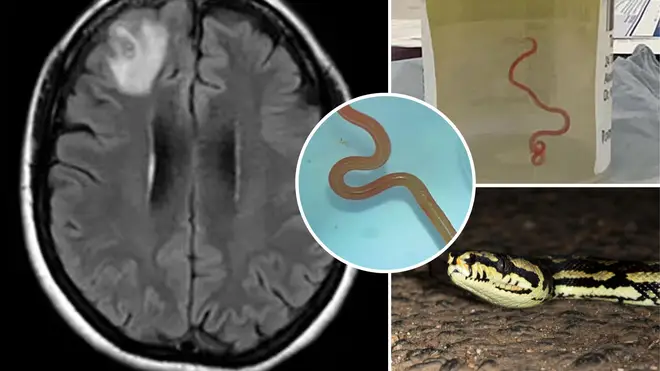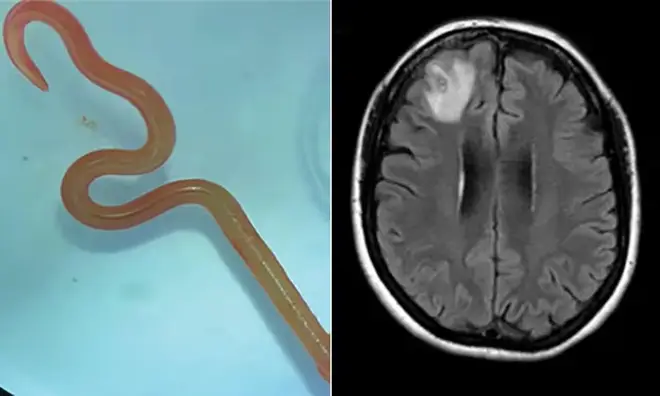
Shelagh Fogarty 1pm - 4pm
29 August 2023, 09:59

An English woman living in Australia left medics astounded after they found an 8cm worm living in her brain.
The unnamed woman, 64, was living in New South Wales, Australia when she first started to complain of her symptoms.
She was first admitted to hospital in January 2021 after three weeks of abdominal pain and diarrhoea, which was later followed by a dry cough and night sweats.
Tests originally came back inconclusive until eventually she received a diagnosis of pneumonia originating from an undisclosed source and was prescribed steroids.
Despite the steroids, she returned three weeks later with a fever and persistent cough and was given immunosuppressing medication as medics suspected she had T-cell driven hypereosinophilic syndrome, a potentially life-threatening condition where the body's immune system goes into overdrive.
But she returned again the following year in January 2022, after her symptoms developed into forgetfulness and depression.
It was only after an MRI scan in 2022 that medics discovered she had a brain lesion.
They then had to operate on the woman’s brain where they came across a “string-like structure” within the lesion, which turned out to be a roundworm, which measured 8cm in length and 1mm in diameter.
A neurosurgeon colleague called hospital infectious diseases physician Dr Sanjaya Senanayake and said: “Oh my god, you wouldn’t believe what I just found in this lady’s brain – and it’s alive and wriggling.”
A motile helminth, which is a parasitic roundworm, was living in the right frontal lobe lesion of her brain.

The worm, which is typically found in the digestive tracts of carpet pythons, was identified as a third-stage larva of the Ophidascaris robertsi nematode species.
Medics have suggested that the worm may have ended up in the woman’s brain as a result of eating edible grasses that were tainted with snake faeces - although the exact cause cannot be confirmed.
They also suggested previous immunpsuppressing drugs she was prescribed may have helped the larvae travel.
“We hypothesised that she inadvertently consumed eggs either directly from the vegetation or indirectly by contamination of her hands or kitchen equipment," the medics said.
They suggested that the eggs then would have hatched in her body and the larvae then would have travelled to her brain.
This is the first documented instance of such a parasite infecting a human, as well as the first instance of the worm infecting the brain of any species.
Half a year after the surgery, the woman’s forgetfulness and depression had improved slightly but not completely.
While subsequent medical procedures have indicated no additional worms remained in the woman’s body, medics have said she must continue to be monitored.
This is due to past studies which revealed the worm’s eggs can remain in a body for over four years.
Medics have since warned against cases of its kind, as they said it highlighted the ongoing risk of zoonotic diseases - which refers to the spread of diseases from animals to people.